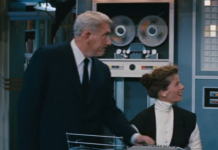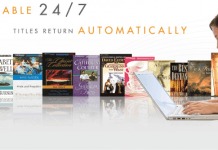 That’s the title of an article in the Chronicle of Higher Education today. In discussing a librarian’s needs the author interviewed James Mouw, assistant director for technical and electronic resources at the University of Chicago Library.
That’s the title of an article in the Chronicle of Higher Education today. In discussing a librarian’s needs the author interviewed James Mouw, assistant director for technical and electronic resources at the University of Chicago Library.
Mouw laid out a few criteria he wants digital monographs to meet. First, if there are going to be print and digital versions, they should be available at the same time, so the library can decide which best suits its needs. “If we have patron requests, we’re not going to wait three months for an e-book,” he said.
Second, digital monographs need to be made available in a way that allows the library to pick and choose and not make duplicate purchases. “They need to be present in our vendor databases so we can select them, they need to be part of our approval plans, they need to be found, selected, paid for, all through our regular acquisitions streams,” Mouw said. The library’s major book supplier is Yankee Book Peddler. That doesn’t preclude working with other vendors. Would he buy digital monographs from a university-press consortium? “It would depend on the arrangement, but sure,” he said.
Third, the Chicago library strongly prefers to buy digital content that’s guaranteed be permanently accessible, “so we essentially own it,” Mouw said. That means the publisher needs to have a sound archival strategy in place. (Mouw mentioned the Portico model as an example of perpetual archiving.)
Lots more in the article. Thanks to Michael von Glahn for the link.


































For the sake of students and researchers, I’d add another must: the ability to check out the documents to digital devices from laptops to ereaders. Any DRM and time limitations they put on a checkout shouldn’t keep documents from being available for all the major digital reading platforms.
And that means we all need to agree on some set of standards.